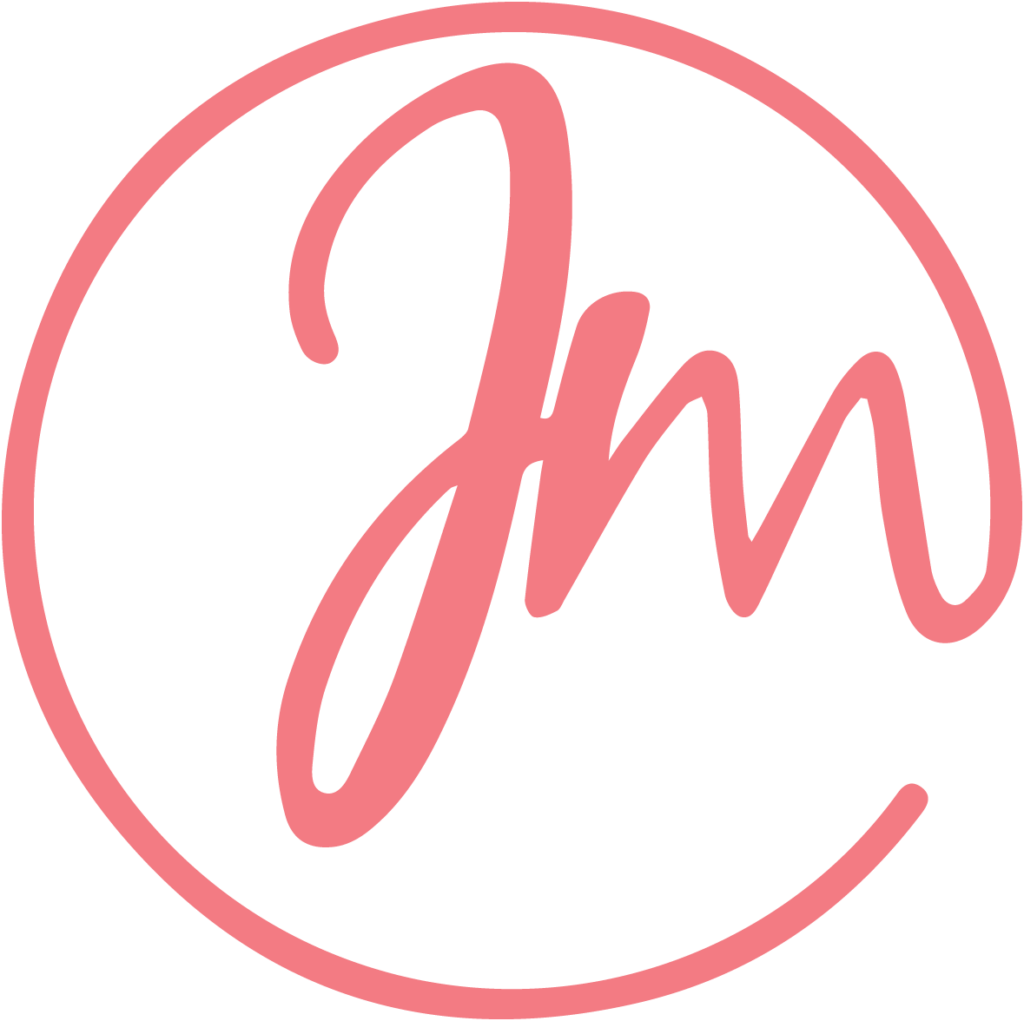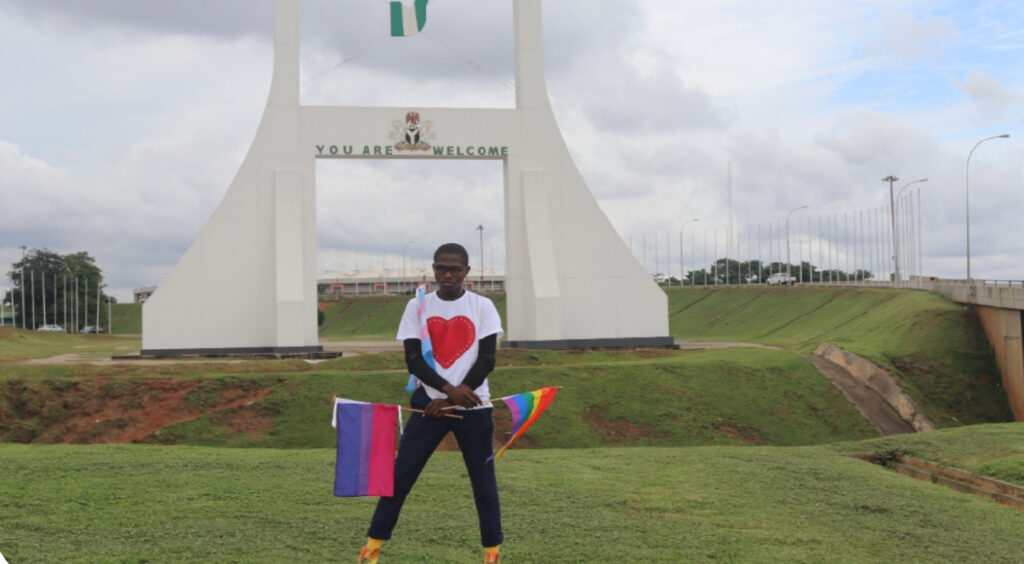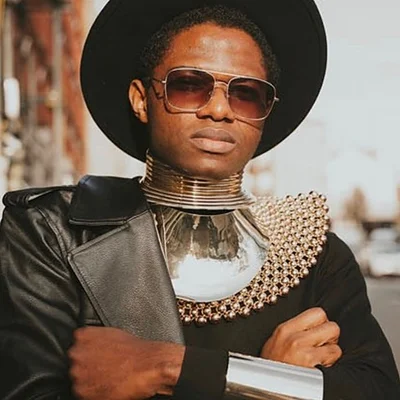The stigma that comes with being perceived under the umbrella of the LGBTQ+ community is not unique, like many geographies and modern generations before us, we have laid underground, silenced and castaway, but in our insignia and glory we rise, resilient and paying the ultimate price in death and blood, gore, pain and shame the trials and tribulations trail our individual and collective defiance and acts of civil disobedience.
Welcome to Abuja, Nigeria, Time: 9:30 am (CAT), Topic: Bisexuality (Bi-Pride)
Unpacking the history behind the bisexual flag (Tri-colour design) by Michael Page 1998 and Bi-visibility day, The 23rd of September officially marks Bi Visibility Day, which aims to recognise and raise awareness for individuals that identify as Bi (sexual identity, Bisexual for sexual orientation).
Initially established in 1999, Bi Visibility Day was created by Bisexual Rights Activists Wendy Curry, Michael Page and Gigi Raven who felt the Bi community deserved recognition as they often were invisible and restricted to the assumptions of being either gay, lesbian, or straight.
Bi people have often experienced neglect towards their sexual identity but also, have been subjected to negative stereotypes such as being ‘sexually greedy’ and accused of being ‘confused’ (Cruz, 2016).
Therefore, this day is crucial to avoid mislabelling Bi identities and allows the voice of the Bi community to be heard and acknowledged.
In Nigeria and globally, these groups of special people in our community often wear a veil of silence, fetishized, despised, and dismissed both within and beyond the community. The purpose of this movement is to humanise the LGBTQ+ experience as much as revisit the painful and glorious past and pay homage to the individuals who have given us the identity that is the rainbow emblems we know and love today, the thoughts behind them; and voice the oft unknown names behind these flags.
About one-year post-Stonewall riots, the first gay pride marches commenced (June 28th, 1970). And took place in New York, Los Angeles, Chicago, and San Francisco. Pride events are officially celebrated as an ode to the stonewall uprising yearly in June. London followed the pride trend in 1972 and the following year, Brighton, in 1973.
Not much of the LGBTQ+ experience has been preserved and documented before and post Nigeria’s independence in 1960 but historic research argues that our “(Tr)ans-cestors” were fiercely powerful in both outlook, embodiment, and presentation a typical example is Queen Amina of Zaria (the warrior queen). From the territories before “Nigeria” emerged: Nigerian colony, Protectorates, and Northern Cameroon. 1901 marked the takeover of our geographical region and rule of the British, which by inheritance, shapes us as a people till the present day much of which is our religious and political systems: in modern history, the Parliamentary Westminster system and after the military coup takeover in 1966, came the current presidential system in 1979 so far this has not helped us as a people in both socio-economic metric as well as progress within human right yardstick (don’t get me started as to how well Nigeria is faring towards achieving the United Nations Sustainable Development Goals- UNSDGs).
Another by-product of the British rule is religion: Christianity to which I was born and quite frankly did more harm than good to me personally, and dare I say evidentially, to countless others as it pertains to our LGBTQ+ existence and experience. Nothing quite prepared my younger self for the exhausting marathon of dualities in confusion, bullying and the burden of mental and physical exhaustion in the presence of suicidal ideation. The performance of societal normative and survival became an everyday rehearsal and execution for my younger self albeit, laced with many visible and miserable failures but I digress, back to history: As the LGBTQ+ wave gained traction, The 1980s ushered several “firsts” notably in London with London’s first Black Gay and Lesbian Group as well as the London Bisexual Group.
The decriminalisation of sex between two men over the age of 21 “in private” happens in Northern Ireland and Scotland and thus the formation of even more bisexual organisations such as the Edinburgh Bisexual Group, and The National Bisexual Conference (currently called BiCon) began.
Not only Bisexual issues gain prominence, but Trans issues followed in succession.
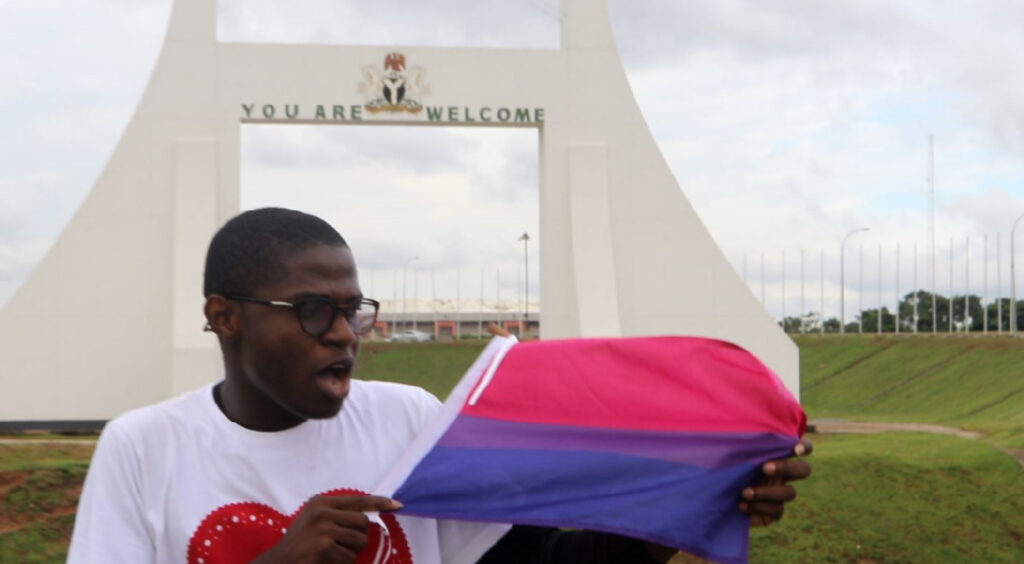
“We are taking up space and challenging our reality as a people whilst revisiting the past to have a sense of our journeys to the future”
The mega city of Abuja is argued by many to be the hub of LGBTQ+ activities, others on social media debate that it is between Lagos, Enugu, and the Northern parts of Nigeria, albeit none of this argument is backed up by data, one thing is for sure there is a thriving LGBTQ+ scene in Nigeria and although progress seems to be slow, we are gaining visibility, nonetheless.
Why we chose City Gate: The city gate is meant to welcome “anyone” into the Federal Capital Territory (FCT) Abuja, but the reality is that it doesn’t as evidenced by the current law (Same-Sex Marriage Prohibition Act) SSMPA amongst other laws, public and police attitude towards said social group.
LGBT murder is an all too familiar occurrence and heavily underreported not only in big cities but across Nigeria and the African diaspora. Sadly, it is still a menace on the global scene.
LGBT+ Visibility and acceptance within mainstream society have come a long way and as a result, many LGBT+ communities globally are thriving in both work and co-existence with our heterosexual counterparts. This, however, has not trickled down into many parts of Africa (Nigeria as a case study) and other parts of the globe. Unarguably, there is still much work to do, and collective pride is a long walk to freedom for many of us, with the introduction of more laws such as the recent Anti-Cross dressers Bill.
The dawn of social media has thankfully given us a platform for advocacy, visibility and agency in self-expression and autonomy but even that has been threatened with the social media ban another silencing act from the inept government that embodies a curse to the nation more than anything.
Progress is painfully slow in Nigeria.
Welcome to pride it is a protest RECLAIM IT! None is free until we all are “this is a call-to-action”.
The Bisexual Pride flag was designed by Michael Page, one of the activists who founded the day, in 1998. It consists of three colours: Pink, Lavender and Blue, with each colour having significance. According to Casey Hoke (Transgender artist, activist, and speaker), Page created the flag with ‘40% pink (to represent homosexuality), 20% purple (to represent a combination of homosexuality and heterosexuality), and 40% blue (to represent heterosexuality)’ (2017).
The death penalty is rife for homosexuals in Mauritania, Sudan, northern Nigeria, and southern Somalia.
As reported by Amnesty UK, homosexuality is notoriously illegal in many parts of Africa including Egypt, Algeria, Botswana, Cameroon, Eritrea, Gambia, Morocco, Sao Tome and Principe, Togo, Tanzania, Namibia, Tunisia, Uganda, Sudan, Liberia, Malawi amongst many other African and non-African nations with some recorded progress in parts of the world painfully regressing as seen in Ghana etc.
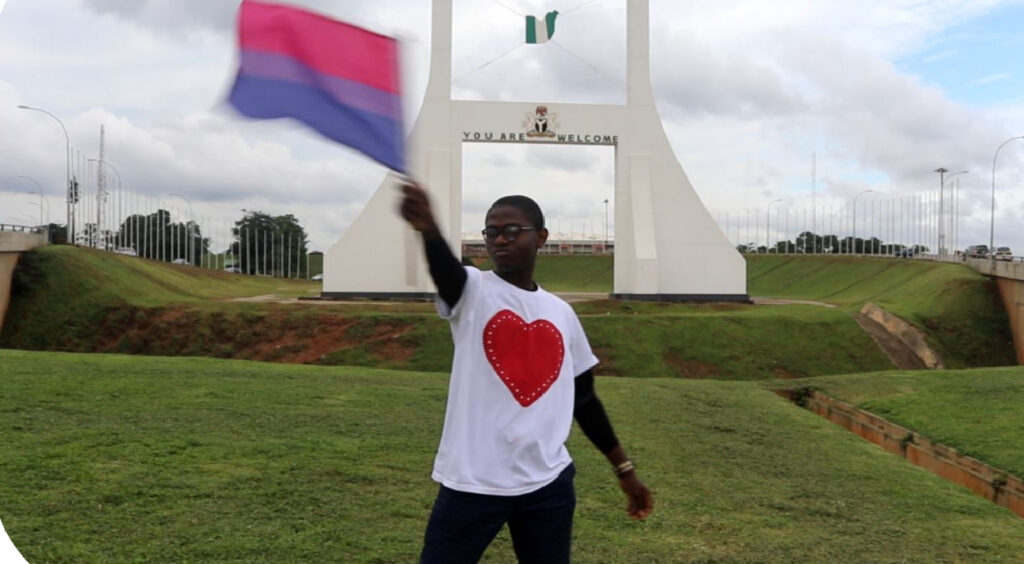
Read the metro UK Article about Joel’s pride Here:
Special thanks:
All staff and members of (MIF): The Mordi Ibe Foundation, Stonewall UK
Lady Phyll Emmanuel Eboigbodi Collins Onuahon
Peter Tatchell Oluwaseun Ijalana Moud Goba
Moyo Arise Elizabeth Ebube R. Mordi Mary-Jane Mordi
Gaby Obeyi and Omono Geraldine O. Okosun Jeremy Corbyn
Members and staff of the Albert Kennedy Trust (AKT), Swatch and Dr Martens UK.
And to the many other anonymous brave actors (On this day 01/09/2019)
Media Credit: Anonymous: Director of Photography, Videographer, Chauffeurs and Allies.
This will not have happened without all your encouragement and unwavering support. Thank you!
Social media handles: Personal: @Mordiofficial and Non-profit: @Mif_Nigeria
